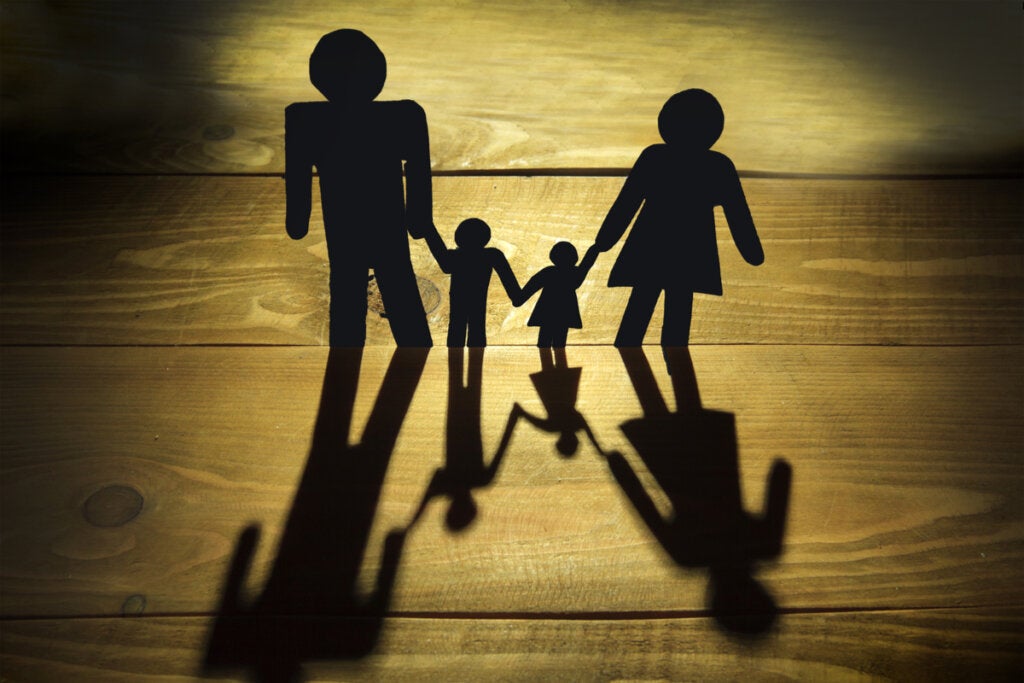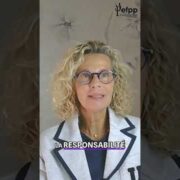There are a number of dynamics that build the foundations of a dysfunctional narcissistic family. They’re the kind of behaviors in which the parents represent the sole center of power and attention. As a matter of fact, the education and upbringing of the children are exclusively oriented in such a way as to only satisfy the needs of the parents. In this way, an environment is gradually formed that’s based on manipulation, unhappiness, and also negligence.
These scenarios are situations of extreme emotional suffering. Furthermore, there’s one aspect that simply can’t be ignored. This is the fact that growing up in a dysfunctional environment orchestrated by behaviors based on submission and psychological exhaustion has a great psychological impact. In fact, many of these little ones grow up under the shadow of organized trauma.
As a matter of fact, it’s extremely common for narcissistic families to be defined as small sects. Groups that psychologically diminish their own members for years. This leaves serious consequences both in the short and long term…
Putting a narcissistic family to one side isn’t easy. The ties that bind children are strong. For this reason, they can’t simply just suddenly be cut.
The rules of a dysfunctional narcissistic family
Many people go to psychological therapy only to discover that their depression, generalized anxiety disorder, or post-traumatic stress is due to having grown up in a dysfunctional narcissistic family. Because the truth is, if you grow up in a harmful family environment, you’re not always aware that your parents conform to a narcissistic pattern of behavior.
The only thing that you do perceive is the constant violation, lack of affection, emotional detachment and the impact of criticism that both constrains and destroys you. There’s a great deal of scientific research that tells us about this issue. For example, research works such as those carried out at the Bahauddin University in Pakistan.
Generally, in these kinds of families, the narcissistic figure tends to be the father. Indeed, all the dynamics of manipulation, control, and psychological submission fall on this figure. For this reason, the rest of the family members act according to the father’s needs and requirements. In fact, they completely neglect themselves.
Let’s take a look at the rules of a dysfunctional narcissistic family.
1. Assume and accept everything (fear of disapproval)
The engine that drives these scenarios is fear and submission. The narcissist (or narcissists, if both parents are) sets the rules and guidelines. Nobody can escape them. They simply have to accept everything that’s said, demanded, or proposed. For example, it’s mandatory to have the same opinions, the same values, and to conform 200 percent to the family narrative…
Therefore, children in these situations are defined by the fear of disapproval, and of not being as the narcissist wants them to be.
2. Worship the narcissist (nobody else matters)
Research works such as those conducted by the University of Wollongong, in Australia, suggest that the narcissistic personality is defined by very specific traits. This study states that narcissists show pathological grandeur combined with great vulnerability. This means that they need continual reinforcement by way of being constantly validated and admired.
Therefore, in the environment of a dysfunctional narcissistic family, only the needs of the narcissist will matter. Those of the others take second place.
3. Don’t show either weakness or feelings
Make no mistake, in a narcissistic family, a child mustn’t show fallibility. Most importantly, they mustn’t show their feelings. That’s because their narcissistic parents won’t hesitate to ridicule and shame them for every tear they shed and every mistake they make. In fact, they’re skilled boycotters of self-esteem.
4. You take the blame for everything
One of the traits of the dysfunctional narcissistic family is the projection of guilt. For instance, whenever the narcissistic figure (or figures) do badly in some aspect, such as work, they’ll always put the responsibility onto others in the family. This is a harmful and clearly destructive behavior that leaves behind serious consequences.
5. The dysfunctional narcissistic family and self-deception
“Our family is the best, all the rest are irresponsible, incompetent, or wrong” These kinds of statements are a constant in environments dominated by a narcissist. They tend to highlight the (false) virtues that define them. In this way, these parents manage to convince their children that their home is the best in the world.
6. There isn’t love for all, so there are “favorites”
The narcissistic figure is the focus towards which all attention should be directed. In fact, the needs, desires, and opinions of others are irrelevant. It’s only the figure that holds power in the family who matters. Consequently, another recurring factor is a lack of affection, healthy attachment, validation, and recognition of many of the members of the household.
Nevertheless, the narcissist will usually have a favorite: the golden child. These children are given concessions and compliments, thus discriminating against their siblings. However, the golden child carries on their shoulders the obligation to fulfill all the expectations of the narcissist. This causes its own kind of suffering.
7. Keeping up the appearance of being a happy family
Nobody knows what happens in an inward-facing home. There are families that appear to be happy and a clear example of harmony. However, the same happens with the dysfunctional narcissistic family. As a matter of fact, few would guess the internal dynamics of wear and tear present in these kinds of families.
8. Anger (externalized or repressed) is a constant
A narcissist is a frustrated person who needs the attention of others to strengthen their image. However, they’re seldom satisfied. This feeling of anger ends up being projected onto the other members of the family.
On the other hand, children also quietly accumulate the same anger. Indeed, the unhappiness and rage they feel due to each experience and submission accumulate. In fact, they often somatize these feelings.
9. Denial: nothing that happens is seen as problematic
One of the reasons why someone who has lived in a dysfunctional narcissistic family ends up needing psychological help is because of one particular reason. This is the fact that, over the years, they’ve taken for granted that everything they experienced was normal. Indeed, the abuse, criticism, humiliation, emotional manipulation, and the atmosphere of fear which permeated every corner of the house, was seen as standard. It was something that they hid, kept quiet about, and even denied.
Denial of suffering as a survival mechanism is a common resource applied by victims of narcissists. Until the time comes when they can’t take it anymore…

10. No identity or initiative
In a narcissistic family, children are prevented from having their own ideas and values. Furthermore, they find it really to build their identity. They also tend to lack initiative. This is because narcissistic families are psychological prisons based on submission and annulment.
11. Some family members will inherit the narcissistic personality
Frequently, some children raised by narcissistic parents end up inheriting (or modeling) the same personality. On the other hand, there are those who, when the time comes, will try by any means to distance themselves from the family.
12. Getting out of a dysfunctional narcissistic family isn’t easy, but it’s possible
The dysfunctional narcissistic family operates with the same psychological mechanisms as a cult. They mentally overrule people and make them believe that they’re nothing without them. Mental dependence, fear, and indecision in many cases make it difficult for these children to become independent.
However, it’s absolutely vital for them to separate themselves from harmful bonds that don’t allow them to grow and subdue and quash their personality. For this reason, if you find yourself in this kind of situation, don’t hesitate to ask for help. There are good professionals who can advise you and offer you resources, support, and mechanisms of action.
How Parents Affect Their Children’s Mental Health
https://lamenteesmaravillosa.com/reglas-familia-narcisista-disfuncional/
The post The 12 Rules of a Dysfunctional Narcissistic Family appeared first on Exploring your mind.


















Comments